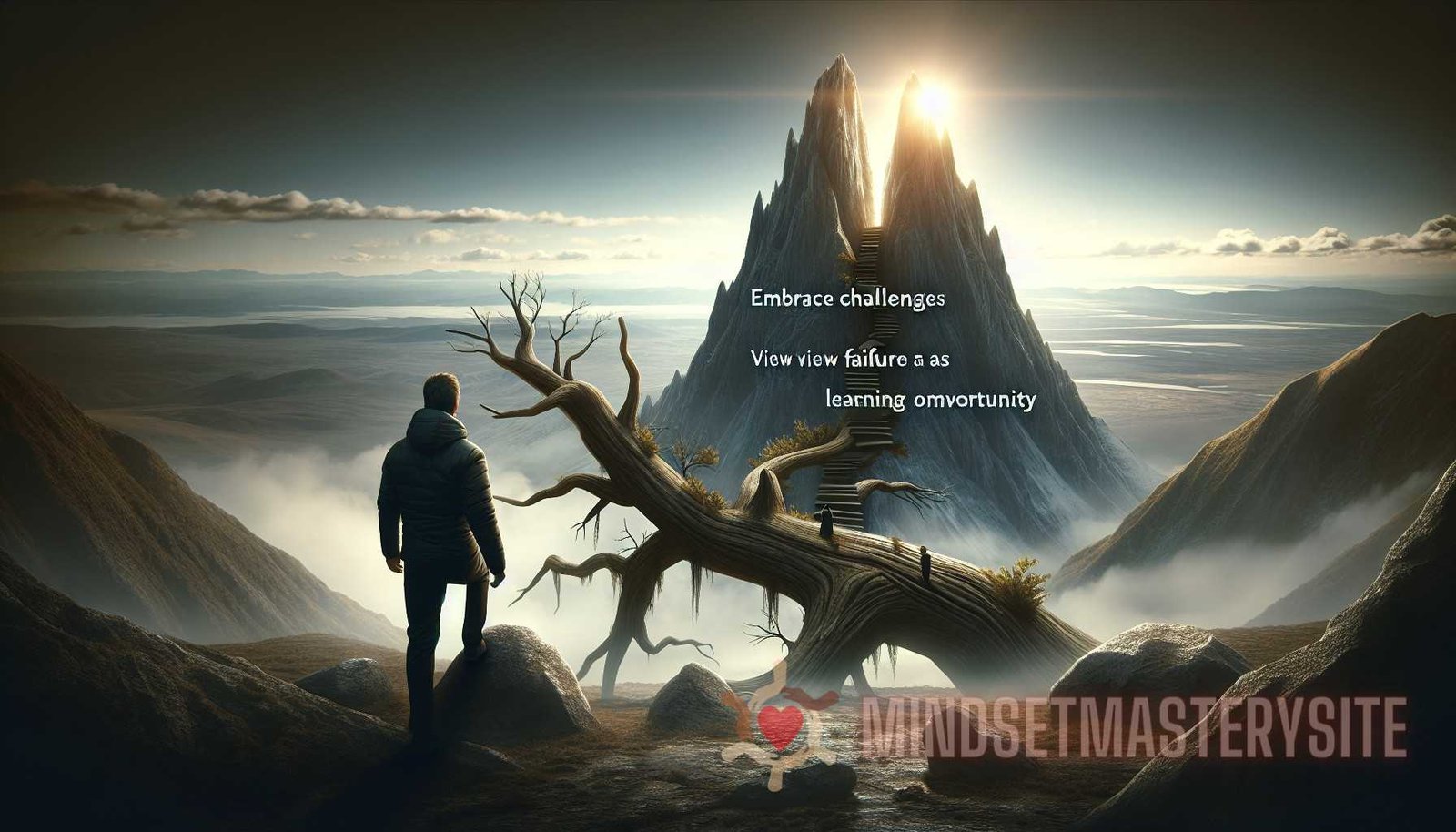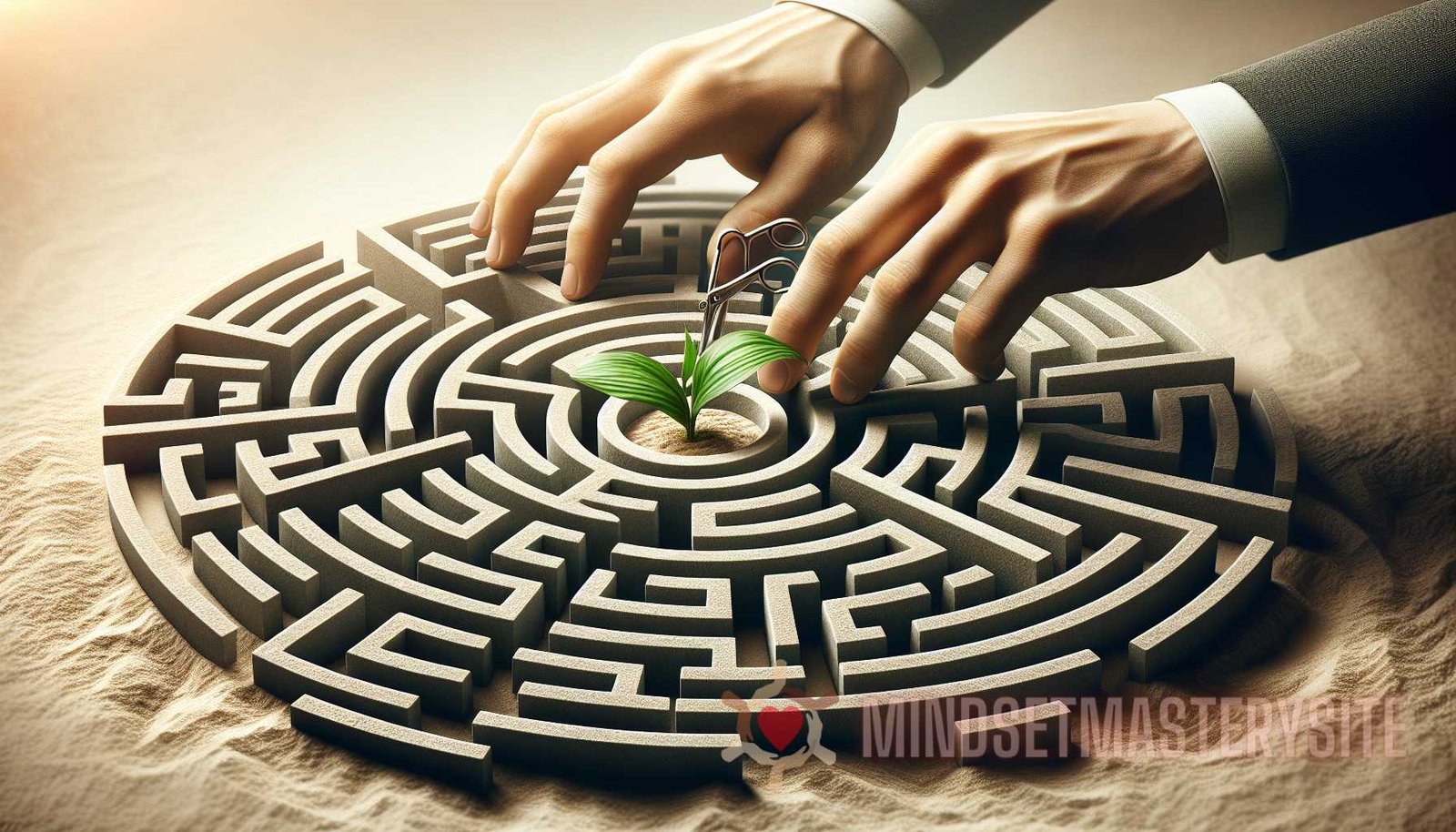Introduction
Welcome to the ultimate guide on unleashing the growth mindset and unveiling the science behind personal transformation. In this comprehensive guide, we will explore the concept of the growth mindset, its origins, and its impact on personal growth and achievement. We will delve into the science behind the growth mindset and provide practical strategies for developing and nurturing this mindset in your own life. Join us on this journey of self-discovery and learn how to unlock your full potential.
What is the Growth Mindset?
The growth mindset, as coined by psychologist Carol Dweck, refers to the belief that abilities and intelligence can be developed and improved through hard work, dedication, and perseverance. Individuals with a growth mindset believe that their talents and abilities are not fixed traits, but rather qualities that can be cultivated and expanded over time.
Contrary to the growth mindset is the fixed mindset, which is characterized by the belief that intelligence and abilities are innate and unchangeable. Those with a fixed mindset tend to believe that their talents are fixed at birth and that they have limited potential for growth and improvement.
Research has shown that individuals with a growth mindset are more likely to embrace challenges, see failure as a learning opportunity, and persist in the face of setbacks. On the other hand, those with a fixed mindset tend to avoid challenges, fear failure, and give up easily when confronted with obstacles.
The Origins of the Growth Mindset
The concept of the growth mindset emerged from decades of research conducted by psychologist Carol Dweck and her colleagues. Dweck’s groundbreaking studies on achievement and success revealed the power of one’s beliefs and mindset in determining their ability to learn, grow, and achieve.
In one of her seminal studies, Dweck and her team observed how students responded to challenges and setbacks. They found that students who believed that their intelligence and abilities were fixed were more likely to give up and perform poorly when faced with difficult tasks. In contrast, students who believed in their ability to grow and improve were more likely to embrace challenges, persist, and ultimately achieve higher levels of success.
These findings underscored the importance of mindset in determining one’s ability to learn and achieve. Dweck’s research showed that a person’s mindset has a profound impact on their motivation, effort, and resilience in the face of challenges.
The Science behind the Growth Mindset
The growth mindset is not just a catchy concept; it is grounded in scientific research and backed by empirical evidence. In the field of neuroscience, researchers have discovered that the brain is capable of significant plasticity, which means it can change and adapt throughout life.

Neuroplasticity refers to the brain’s ability to form new neural connections and reorganize existing ones in response to experience, learning, and environmental stimuli. This phenomenon provides scientific validation for the idea that the brain is not static but malleable, and that growth and improvement are possible through deliberate practice and effort.
Furthermore, studies have shown that individuals with a growth mindset have greater brain plasticity compared to those with a fixed mindset. This heightened neuroplasticity allows individuals to learn more effectively, adapt to new challenges, and ultimately achieve higher levels of success.
Research has also demonstrated that the growth mindset has a direct impact on cognitive functioning and academic performance. Studies conducted in educational settings have found that students with a growth mindset demonstrate higher levels of engagement, effort, and academic achievement compared to their peers with a fixed mindset.
The Benefits of the Growth Mindset
Embracing the growth mindset has numerous benefits that extend beyond academic performance. Individuals with a growth mindset also tend to experience greater psychological well-being, resilience, and overall satisfaction with life.
Here are some of the key benefits associated with the growth mindset:
- Increased Resilience: Individuals with a growth mindset are more likely to view setbacks as temporary and surmountable. They bounce back quickly from failures and use setbacks as opportunities for growth and learning.
- Greater Motivation and Engagement: The belief that effort and hard work lead to improvement fuels motivation and engagement in individuals with a growth mindset. They are willing to put in the necessary effort to develop their skills and achieve their goals.
- Enhanced Learning and Performance: The growth mindset fosters a love of learning and a desire for continuous improvement. Individuals with a growth mindset are more open to feedback, embrace challenges, and actively seek out opportunities for growth.
The benefits of the growth mindset extend beyond the individual level. In organizations and teams, fostering a growth mindset culture can lead to increased innovation, collaboration, and productivity.
Developing a Growth Mindset
While some individuals naturally possess a growth mindset, it is a mindset that can be cultivated and developed through deliberate effort and practice. Here are some strategies for developing a growth mindset:
- Cultivate Self-Awareness: Take the time to reflect on your own beliefs and mindset. Become aware of any fixed mindset tendencies you may have and consciously challenge them. Remind yourself that your abilities and intelligence can be developed through effort and practice.
- Embrace Challenges: Seek out challenges and step outside of your comfort zone. Embracing challenges is an opportunity for growth and learning. Rather than avoiding difficulties, approach them with a mindset of curiosity and a willingness to learn from them.
- View Failure as a Learning Opportunity: Instead of viewing failure as a reflection of your abilities, see it as an opportunity to learn and grow. Embrace failure as a natural part of the learning process and focus on the lessons and insights it offers.
- Cultivate a Growth Mindset Environment: Surround yourself with people who have a growth mindset. Engage in conversations and activities that promote growth and development. Avoid negative influences that undermine your belief in the power of effort and practice.
- Practice Self-Compassion: Treat yourself with kindness and compassion when facing setbacks or challenges. Understand that everyone experiences difficulties and setbacks on their journey towards growth and improvement. Be patient with yourself and focus on the progress you are making.

By consistently applying these strategies, you can develop a growth mindset and unlock your full potential for personal growth and achievement.
Nurturing a Growth Mindset in Children
Nurturing a growth mindset in children is crucial for their long-term success and well-being. Here are some strategies for fostering a growth mindset in children:
- Praise Effort and Process: Instead of praising innate abilities and talents, focus on acknowledging and praising the effort, perseverance, and strategies children use to overcome challenges.
- Encourage a Love of Learning: Foster a love of learning by providing children with opportunities for exploration, discovery, and intellectual curiosity. Encourage them to ask questions, seek answers, and develop a growth mindset towards their education.
- Teach Resilience: Help children develop resilience by teaching them how to bounce back from failures and setbacks. Encourage them to see setbacks as learning opportunities and teach them problem-solving skills to overcome obstacles.
- Model a Growth Mindset: Children learn by example, so it is important to model a growth mindset in your own actions and attitudes. Show them that challenges are opportunities for growth, and that mistakes and failures are a natural part of the learning process.
By nurturing a growth mindset in children, parents and educators can equip them with the tools and mindset needed to thrive in an ever-changing world.
Conclusion
The growth mindset is a powerful tool for personal transformation and achievement. Backed by scientific research and empirical evidence, the growth mindset offers a roadmap for unlocking our full potential and overcoming limitations.
By embracing the growth mindset, we can cultivate a passion for learning, develop resilience in the face of challenges, and achieve higher levels of success. Whether in our personal lives, at work, or in educational settings, the growth mindset has the potential to transform the way we approach learning, growth, and achievement.
Now that you have a solid understanding of the science behind the growth mindset, it’s time to put it into practice. Visit this article on the path to growth to discover practical strategies for developing a growth mindset. Additionally, check out this article on growth mindset rewards to learn about the positive outcomes that await those who embrace the growth mindset.



